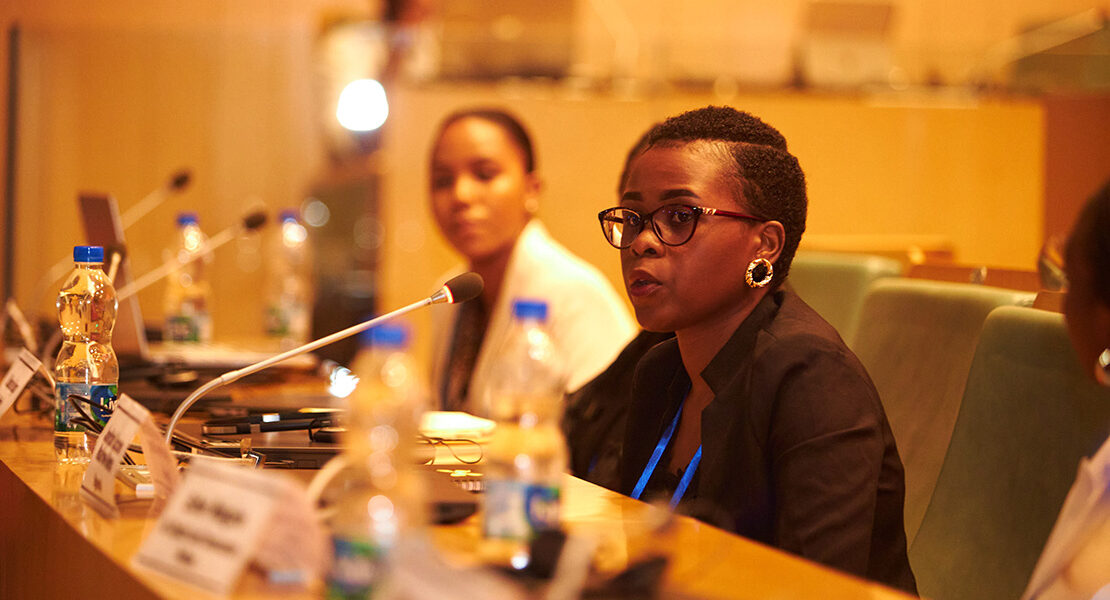Africa is witnessing a surge in digital startups and innovations, driven by improved internet connectivity and the ingenuity and determination of its young population.
This trend was evident at the recently concluded 4th Specialized Technical Committee (STC) on Youth, Culture, and Sports (STC-YCS4) pre-event, which took place from May 18-19, 2023, at the African Union headquarters in Addis Ababa, Ethiopia. Held under the theme “Taking 1 Million to the Next Level: Scaling Up Youth Development Initiatives for Impact,” the forum brought together young people from various African countries, aiming to facilitate peer-to-peer and inter-country learning on issues most relevant to African youth.
The participants discussed pressing concerns such as persistent unemployment and showcased their diverse innovations and passions across different sectors.
Notably, civic tech stood out as a prominent emerging sector due to its potential to promote good governance throughout the continent, with young women leading the way. These visionary women-founded initiatives are utilizing technology to revolutionize government transparency, accountability, service delivery, and women’s political participation; consequently, contributing to the realization of the African Charter on Democracy, Elections, and Governance (ACDEG) as well as the African Union’s Agenda 2063 Aspiration 3, which envisions “An Africa of good governance, democracy, respect for human rights, justice, and the rule of law.”
In Uganda, Joanita Success Nsasiirwe says SEMA was born out of a personal experience of injustice after the organization’s co-founder Nathalie Dijkman’s bag was snatched by a thief while taking a walk in one of the suburbs of Kampala. The thief made away with her passport and a host of other valuables. The two reported the case to the nearest police station, but nothing ever came out of the case. “We didn’t recover anything nor did we get any progress reports on the stolen items. We also couldn’t provide feedback on our experience at the police station. This is where SEMA was born. We needed a place where citizens can report their grievances whenever they do not receive good service at a given office,” recalls Joanita.
The platform empowers citizens to give meaningful feedback at different service points, promoting government accountability and transparency. SEMA employs three primary tools: short surveys at service offices, device buttons with emoji-like feedback options, and remote tools like QR codes and toll-free lines. The gathered information is shared with the respective institutions to close the feedback loop. Currently collaborating with five institutions in Uganda, SEMA has collected 300,000 data points and shared 60,000 reports.
“It is important for governments to be accountable and transparent because it encourages the people in charge to create policies and make decisions based on what the citizens have to say, which directly affects them. Accountability lets people know that since we pay taxes, this is what the government is doing in return,” says Joanita.
In 2021, SEMA was one of the 13 youth initiatives selected for the African Union Civic Tech Fund. With support from the fund, they were able to build on to their technology and develop a dashboard that has since enabled access to real-time information. “Originally, we would take physical reports to these offices and this made us incur transport costs and other expenses. But with this dashboard, we can provide logins to the different offices and the officers can access the information in real time. We don’t even have to wait until the end of the month. We keep uploading information as it comes.”
While Africa continues to make strides in its quest for gender parity in political representation, significant challenges persist. According to the Africa Barometer 2021 report, women constitute only 24 per cent of the 12,113 parliamentarians in Africa, 25 per cent in the lower houses and 20 per cent in the upper houses of parliaments, with lack of economic resources cited as one of the biggest impediments to their political participation.
“In Nigeria, it’s even worse, with women representation standing at around 6.7% in the last electoral cycle. It’s disheartening when you look at numbers like this. Although the goal is 35%, I believe it should actually be at least 50%,” says Solape Sonuga, Policy and Strategic Partnerships Manager at ElectHer Development Initiative.
Through innovative approaches like technology, behavioral change, capacity development, and resource mobilization, the Nigeria based initiative is striving to increase women’s active involvement in politics and public life by providing them access to financial, technological, and social resources.
During the 2023 Nigerian elections, ElectHer supported three women candidates who emerged successful through its Obinrin Initiative tool.
“The Obinrin Initiative is an arts project tool that ElectHer uses to raise resources for women running for political leadership. The first edition of Obinrin was an art exhibition where a group of artists were commissioned to create art pieces that evoke emotion and tell the stories of women’s representation. These art pieces were then sold, and the proceeds went to the women running for political leadership.”
With support from the African Union Civic Tech Fund, ElectHer is currently developing Africa’s first virtual community for women aspiring to run for office. Solape says the ‘Decide To Run’ platform will enable women to learn from the experiences and challenges faced by their peers across the continent.
Solape emphasizes that digital technology presents enormous opportunities for African youth to address civic challenges. “I will use the ‘Decide To Run’ tech platform as an example, it will literally allow you to harness the experiences from women leaders all over Africa, at your fingertips. So technology makes the world a smaller place and it allows you to have access to information, data and knowledge that you would not have had access to without digital tools.”
Delivering his keynote address at the event, the German Ambassador to Ethiopia and the African Union Stephen Auer commended the innovative solutions presented by the youth. “I am impressed by the work of innovation in the Civil Society sector in promoting good governance and contributing to the Aspiration of Agenda 2063,” said Ambassador Stephen Auer.
He further acknowledged the potential for scaling these initiatives and announced plans for a second round of the AU Digital and Innovation Fellowship and the Civic Tech Fund.
Launched in 2021, the African Union Civic Tech Fund aims to drive citizen participation in governance through data and digital technologies while acknowledging the vital role of African youth in shaping the continent’s future.
The fund has been instrumental in recognizing initiatives like SEMA and ElectHer, that demonstrate the transformative power of youth-led solutions. By empowering women and youth and harnessing their innovative ideas and technological skills, African systems can be transformed to better serve the continent’s needs.

